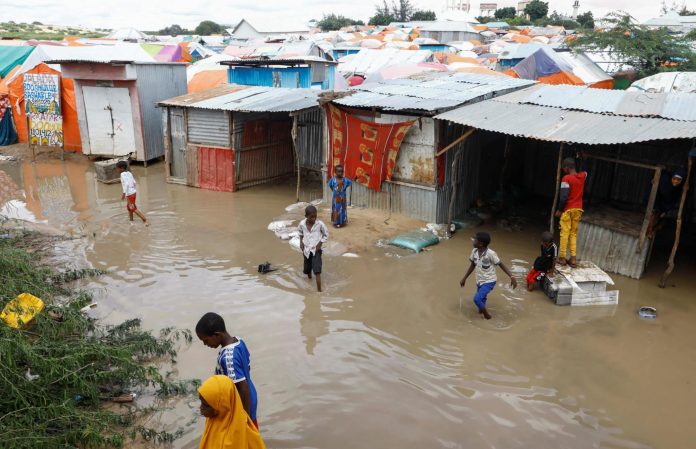Facebook Twitter (X) Instagram
In central Somalia’s Hiran region, severe flooding has forced over 37,000 students out of their schools, causing significant disruption to education. The recent Somali floods inundated schools, damaging classrooms and destroying learning materials. This situation has raised concerns among parents and teachers about the impact on students’ performance in the upcoming national examinations.
Challanges to Education after the Somali Floods
Elmi Hashi Dhalin, a local teacher, highlighted the challenges of resuming lessons, noting that many students have been displaced to distant locations, making it difficult to bring them back to their schools. Parents have appealed to the government to establish schools in higher grounds to prevent such disruptions in the future.
Last year, similar flooding led the Somali government to organize special exams to accommodate affected students. This year, officials hope to avoid a repeat of that scenario. Mustaf Osman Mohamud, director of education in the Beledweyn District, emphasized the need to ensure students can participate in examinations despite the challenges posed by floods.
Greenhouse Farming to Combat Resulting Food Insecurity
In a separate development, Somalia is witnessing an agricultural revolution with the introduction of greenhouse farming. This initiative aims to combat food insecurity, which has been exacerbated by years of civil war, droughts, and recent flooding. Young and ambitious farmers are now using modern agricultural practices to grow fruits and vegetables year-round, ensuring a consistent food supply in Mogadishu.
Greenhouses have proliferated around the capital, with over 250 now in operation. This method not only boosts food production but also creates employment opportunities for young agricultural graduates. Abdurahman Mire, director of Green Life Company, explained that the initiative was driven by the need to make Somalia more self-sufficient in food production.
However, there are concerns about the environmental sustainability of greenhouse farming, which is energy and water-intensive. Experts like George Wamukoya from the African Group of Negotiators Expert Support (AGNES) stress the importance of managing water resources carefully to ensure the long-term viability of this agricultural method.
Read more:
Somalia: Thousands of students displaced as floods submerge schools | Africanews

